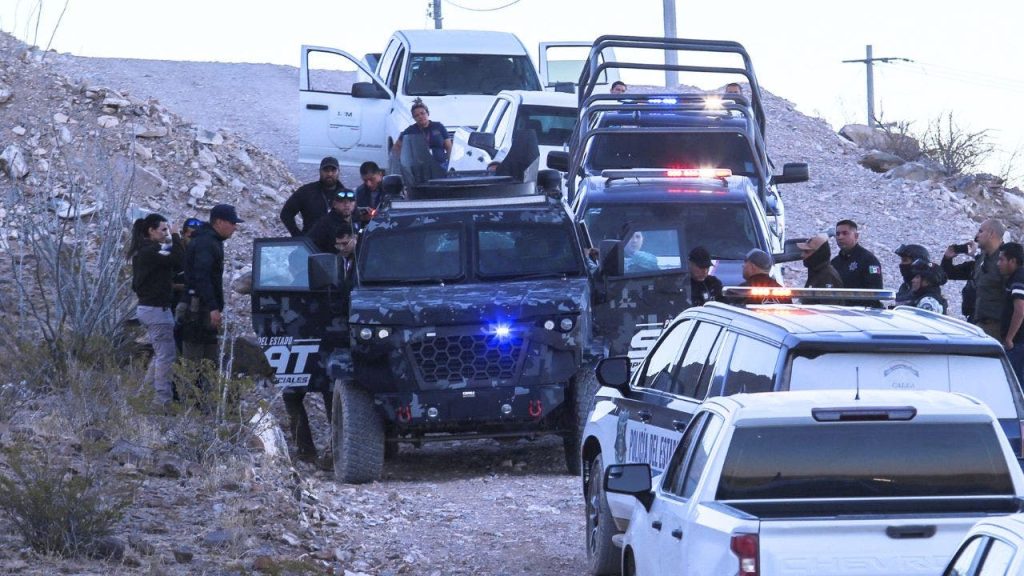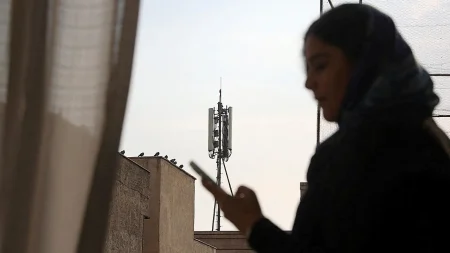The killing of a Mexican immigration agent near the US-Mexico border has sparked outrage and highlighted the escalating tensions surrounding migration in the region. Luis Alberto Olivas García, a 30-year veteran of the National Migration Institute, was attacked at a checkpoint south of Ciudad Juarez, Chihuahua, after requesting identification documents from a group of foreign nationals. Two Venezuelan nationals and one Colombian national were subsequently arrested and are suspected of carrying out the fatal attack. The incident underscores the dangers faced by immigration officials working in often volatile border regions.
The attack on Olivas García, who had been recognized earlier that day for his three decades of service, reportedly involved both a sharp weapon and blunt force trauma. Preliminary reports from the Chihuahua security ministry suggest he sustained multiple wounds, possibly inflicted by a sharp object, and a head injury likely caused by a rock. This brutal assault led to the agent’s death, marking a rare instance of deadly violence directed against Mexican immigration officials. The incident comes amidst a surge in migrant crossings at the US-Mexico border, creating a challenging environment for authorities on both sides.
The arrests of the three suspected migrants swiftly followed the discovery of Olivas García’s body. Authorities have not released further details about the suspects or the specific circumstances leading to the confrontation. The incident has prompted a renewed focus on the security risks facing immigration personnel and the complexities of managing migration flows in the region. The case also highlights the diverse nationalities of migrants transiting through Mexico, with individuals from Venezuela and Colombia increasingly seeking entry into the United States.
The killing of the Mexican immigration agent coincides with a period of heightened migratory activity and a backdrop of stricter US immigration policies. Hundreds of US-bound migrants were reported to be queuing at immigration offices in southern Mexico, seeking safe passage northwards. The Biden-Harris administration has faced criticism for its handling of the border situation, with opponents citing record numbers of illegal crossings. Meanwhile, former President Trump’s second term platform centered on border security and a significant expansion of deportation efforts, adding further pressure to the already strained immigration system.
The incident also throws into sharp relief the broader context of migration flows from South America to the United States. Venezuela, in particular, has witnessed a mass exodus of its citizens due to political instability and economic hardship, with many seeking refuge in neighboring countries and further afield. Colombia, too, grapples with complex internal displacement and migration patterns, contributing to the flow of people northwards. The presence of Venezuelan and Colombian nationals among the suspects in this case reflects the changing demographics of migration in the region.
The tragic death of Luis Alberto Olivas García serves as a stark reminder of the human cost of the ongoing migration crisis. It also underscores the challenges faced by immigration officials tasked with enforcing border controls in a dynamic and often perilous environment. The incident is likely to intensify discussions about border security, immigration policy, and the need for comprehensive solutions to address the root causes of migration in the region. Ultimately, the case highlights the complex interplay of factors driving migration, the vulnerabilities of those seeking a better life, and the risks faced by those entrusted with managing the flow of people across borders.















